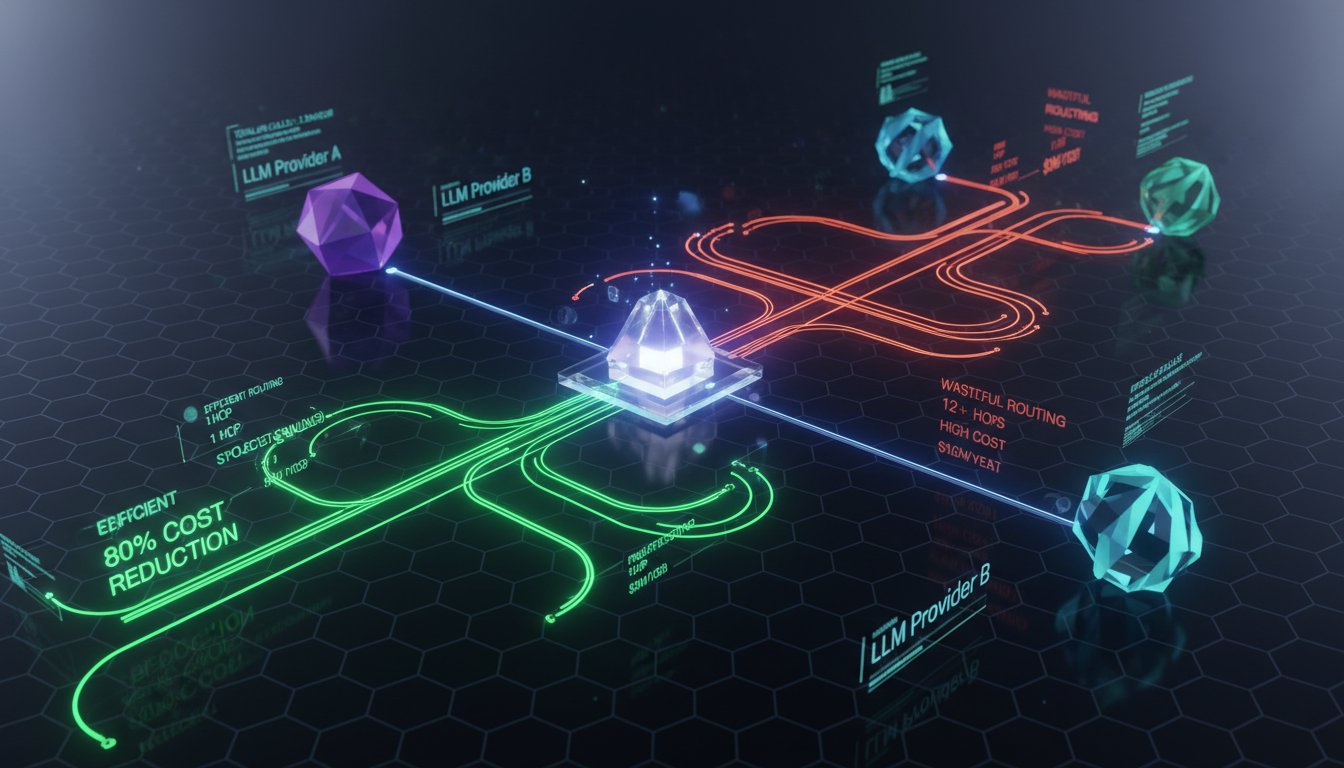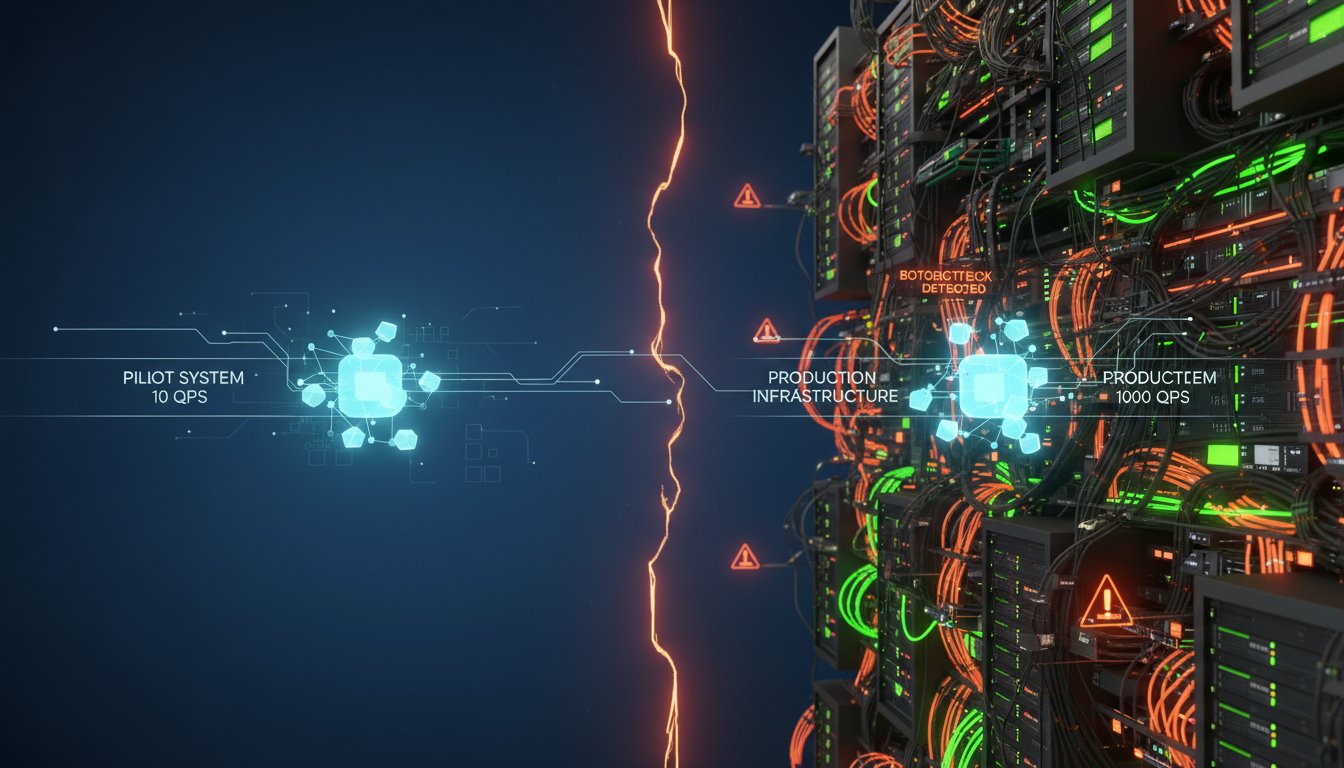Imagine the scene: you’ve just spent two days perfecting a 50-slide presentation for a major client. The visuals are crisp, the data is compelling, and you’ve painstakingly recorded, edited, and timed the audio narration for every single slide. You’re ready to send it off. Then, you spot it—a tiny but critical typo in the script on slide 37. Your heart sinks. Now you have to fire up the microphone, find a quiet space, match the exact tone and pacing, and splice the new audio back in, hoping it doesn’t sound jarringly different from the rest. This manual process is not just tedious; it’s a creativity killer and a bottleneck in a world that demands agility.
This exact scenario is why the process of creating professional, polished presentations is broken. Manually recording, updating, and managing audio is a brittle, time-consuming task that doesn’t scale. Every minor change to the script triggers a cascade of rework. In enterprise settings, where presentations are a primary communication tool, this inefficiency costs hundreds of hours and leads to inconsistent, often outdated, materials. While the AI world buzzes with provocative headlines like “RAG is dead,” fueled by discussions on a supposed shift to purely agent-based architectures, many are missing the point. They overlook the immediate, immense value that foundational Retrieval-Augmented Generation (RAG) patterns can deliver right now to solve these very real, very expensive business problems.
The solution isn’t to wait for some far-off, fully autonomous AI agent to take over. The solution is to apply a practical, elegant RAG-like system to the problem today. We will build a simple yet powerful automation that treats your PowerPoint speaker notes as the knowledge source (the ‘Retrieval’ part) and uses a state-of-the-art AI voice model to create narration (the ‘Generation’ part). In this technical walkthrough, I’ll give you the exact Python script to do it. We’ll break down how to extract your script directly from your slides, send it to the ElevenLabs API for conversion into lifelike audio, and then programmatically insert that audio back into your presentation, perfectly synced. You will leave with a complete, copy-paste-ready solution that transforms a multi-hour chore into a task that takes mere seconds.
The Tech Stack: Prerequisites for Automation
Before we dive into the code, let’s gather the necessary tools. This setup is straightforward and uses readily available, powerful libraries to get the job done. Think of this as your digital toolkit for presentation automation.
Setting Up Your Python Environment
This script relies on Python, the go-to language for automation and data science. If you don’t already have it installed, you’ll need Python 3.6 or newer. You can download it from the official Python website. During installation, make sure to check the box that says “Add Python to PATH” to make it accessible from your command line.
Once Python is installed, you’ll use its package manager, pip, to install the specific libraries we need. pip typically comes bundled with modern Python installations, so you should be ready to go.
Required Python Libraries
Our script depends on two key third-party libraries:
python-pptx: This library is our bridge to Microsoft PowerPoint. It allows us to programmatically read, modify, and create.pptxfiles without ever opening the PowerPoint application.requests: A standard and simple library for making HTTP requests in Python. We’ll use this to communicate with the ElevenLabs API.
To install both, open your terminal or command prompt and run the following command:
pip install python-pptx requests
Securing Your ElevenLabs API Key
The magic of generating lifelike audio comes from the ElevenLabs API. To use it, you’ll need an API key, which acts as a unique identifier and authenticates your requests. Getting one is simple. Their powerful API makes it easy to generate lifelike audio from text in minutes. You can try for free now by signing up at a special partner link: http://elevenlabs.io/?from=partnerjohnson8503.
Once you sign up and log in, navigate to your profile section to find your API key. For security, it’s best practice not to hardcode your API key directly into your script. Instead, store it as an environment variable. This prevents it from being accidentally exposed if you share your code.
Step 1: Scripting the Extraction of PowerPoint Speaker Notes
The foundation of our automation is the speaker notes feature in PowerPoint. This is where you write your script for each slide. Our first task is to create a Python function that opens a .pptx file and systematically extracts these notes, associating each piece of text with its corresponding slide number.
This process demonstrates the ‘Retrieval’ part of our RAG system. We are retrieving context-specific information (the narration script) from a structured data source (the PowerPoint file). The python-pptx library makes this surprisingly easy.
Here is the Python code to accomplish this. It defines a function, extract_notes_from_ppt, that takes the path to your presentation file as input and returns a dictionary where keys are slide numbers and values are the speaker notes.
from pptx import Presentation
def extract_notes_from_ppt(ppt_path):
"""
Extracts speaker notes from each slide of a PowerPoint presentation.
Args:
ppt_path (str): The file path to the .pptx presentation.
Returns:
dict: A dictionary where keys are slide numbers (1-indexed)
and values are the speaker notes as strings.
"""
presentation = Presentation(ppt_path)
notes_dict = {}
for i, slide in enumerate(presentation.slides):
if slide.has_notes_slide:
notes_slide = slide.notes_slide
text_frame = notes_slide.notes_text_frame
if text_frame and text_frame.text:
notes_dict[i + 1] = text_frame.text
print(f"Extracted notes from {len(notes_dict)} slides.")
return notes_dict
This function iterates through every slide, checks if a notes slide exists, and then pulls the text from it. By storing it in a dictionary, we maintain the crucial link between the slide and its script.
Step 2: Generating Lifelike Audio with the ElevenLabs API
With our speaker notes extracted, it’s time for the ‘Generation’ phase. We will now send this text to the ElevenLabs API to generate high-quality audio files. This step involves making a POST request to the ElevenLabs text-to-speech endpoint for each piece of text we extracted.
Handling API Authentication and Voice Selection
To make a successful API call, you must include your API key in the request headers for authentication. You also need to specify which voice you want to use. You can find the voice_id for various pre-made voices in the ElevenLabs documentation, or you can clone your own voice and use its unique ID for truly personalized narration.
Scripting the API Call
The following function, generate_audio_from_text, takes the text, your API key, a voice ID, and an output path. It sends the request to ElevenLabs and, if successful, saves the returned audio content as an MP3 file.
import requests
def generate_audio_from_text(text, api_key, voice_id, output_path):
"""
Generates an audio file from text using the ElevenLabs API.
Args:
text (str): The text to convert to speech.
api_key (str): Your ElevenLabs API key.
voice_id (str): The ID of the voice to use.
output_path (str): The path to save the generated .mp3 file.
"""
url = f"https://api.elevenlabs.io/v1/text-to-speech/{voice_id}"
headers = {
"Accept": "audio/mpeg",
"Content-Type": "application/json",
"xi-api-key": api_key
}
data = {
"text": text,
"model_id": "eleven_multilingual_v2",
"voice_settings": {
"stability": 0.5,
"similarity_boost": 0.75
}
}
response = requests.post(url, json=data, headers=headers)
if response.status_code == 200:
with open(output_path, 'wb') as f:
f.write(response.content)
print(f"Successfully generated audio: {output_path}")
return True
else:
print(f"Error generating audio: {response.status_code} - {response.text}")
return False
This function handles the entire interaction, including setting headers and payload data. It also includes basic error checking to let you know if the API call failed.
Step 3: Putting It All Together: The Full Automation Script
Now we combine our functions into a final, master script. This script will orchestrate the entire workflow: extracting the notes, looping through them to generate an audio file for each slide, and preparing for the final step of insertion.
This complete script is the solution I promised. It’s designed to be run from your command line, taking the PowerPoint file as an input. It saves the generated audio files with a clear naming convention (e.g., slide_1_audio.mp3) so we know exactly which audio belongs to which slide.
import os
from pptx import Presentation
import requests
# --- CONFIGURATION ---
# IMPORTANT: Store your API key as an environment variable for security.
ELEVENLABS_API_KEY = os.getenv("ELEVENLABS_API_KEY", "YOUR_API_KEY_HERE")
# Find your desired voice ID in your ElevenLabs account.
VOICE_ID = "21m00Tcm4TlvDq8ikWAM" # Example: Rachel's voice
POWERPOINT_FILE = "MyPresentation.pptx"
OUTPUT_FOLDER = "generated_audio"
# --- FUNCTION DEFINITIONS (from above) ---
def extract_notes_from_ppt(ppt_path):
# ... (code from Step 1)
presentation = Presentation(ppt_path)
notes_dict = {}
for i, slide in enumerate(presentation.slides):
if slide.has_notes_slide:
notes_slide = slide.notes_slide
text_frame = notes_slide.notes_text_frame
if text_frame and text_frame.text:
notes_dict[i + 1] = text_frame.text
print(f"Extracted notes from {len(notes_dict)} slides.")
return notes_dict
def generate_audio_from_text(text, api_key, voice_id, output_path):
# ... (code from Step 2)
url = f"https://api.elevenlabs.io/v1/text-to-speech/{voice_id}"
headers = {"Accept": "audio/mpeg", "Content-Type": "application/json", "xi-api-key": api_key}
data = {"text": text, "model_id": "eleven_multilingual_v2", "voice_settings": {"stability": 0.5, "similarity_boost": 0.75}}
response = requests.post(url, json=data, headers=headers)
if response.status_code == 200:
with open(output_path, 'wb') as f:
f.write(response.content)
print(f"Successfully generated audio: {output_path}")
return True
else:
print(f"Error: {response.status_code} - {response.text}")
return False
# --- MAIN EXECUTION LOGIC ---
def main():
if not os.path.exists(OUTPUT_FOLDER):
os.makedirs(OUTPUT_FOLDER)
# Step 1: Extract notes
slide_notes = extract_notes_from_ppt(POWERPOINT_FILE)
# Step 2: Generate audio for each note
for slide_num, note_text in slide_notes.items():
if not note_text.strip():
print(f"Skipping slide {slide_num}: No notes found.")
continue
output_file = os.path.join(OUTPUT_FOLDER, f"slide_{slide_num}_audio.mp3")
generate_audio_from_text(note_text, ELEVENLABS_API_KEY, VOICE_ID, output_file)
print("\n--- Audio generation complete! ---")
print(f"Audio files are saved in the '{OUTPUT_FOLDER}' directory.")
print("Next step: Manually insert these audio files into your PowerPoint slides.")
if __name__ == "__main__":
main()
Note: While python-pptx excels at reading and writing shapes and text, programmatically inserting audio files with full playback controls (like ‘play automatically’) is currently a limitation of the library. This script automates the most difficult part—generating the custom audio. The final step is a quick manual drag-and-drop of each MP3 onto its corresponding slide.
Remember that presenter who found a typo on slide 37? Instead of a multi-hour re-recording session filled with frustration, their new workflow is simple: open the PowerPoint, edit the text in the speaker notes, and re-run this script. A new, perfectly matched audio file is generated in seconds. This isn’t a futuristic concept; it’s a practical, high-ROI application of a RAG pattern that solves a persistent problem. While the industry debates the future of agentic AI, this approach proves that RAG is not only alive but is an essential tool for driving real-world efficiency today. Are you ready to stop wasting time and start automating your presentations? Get your ElevenLabs API key and run this script. Try for free now and experience the power of programmatic audio generation firsthand.




